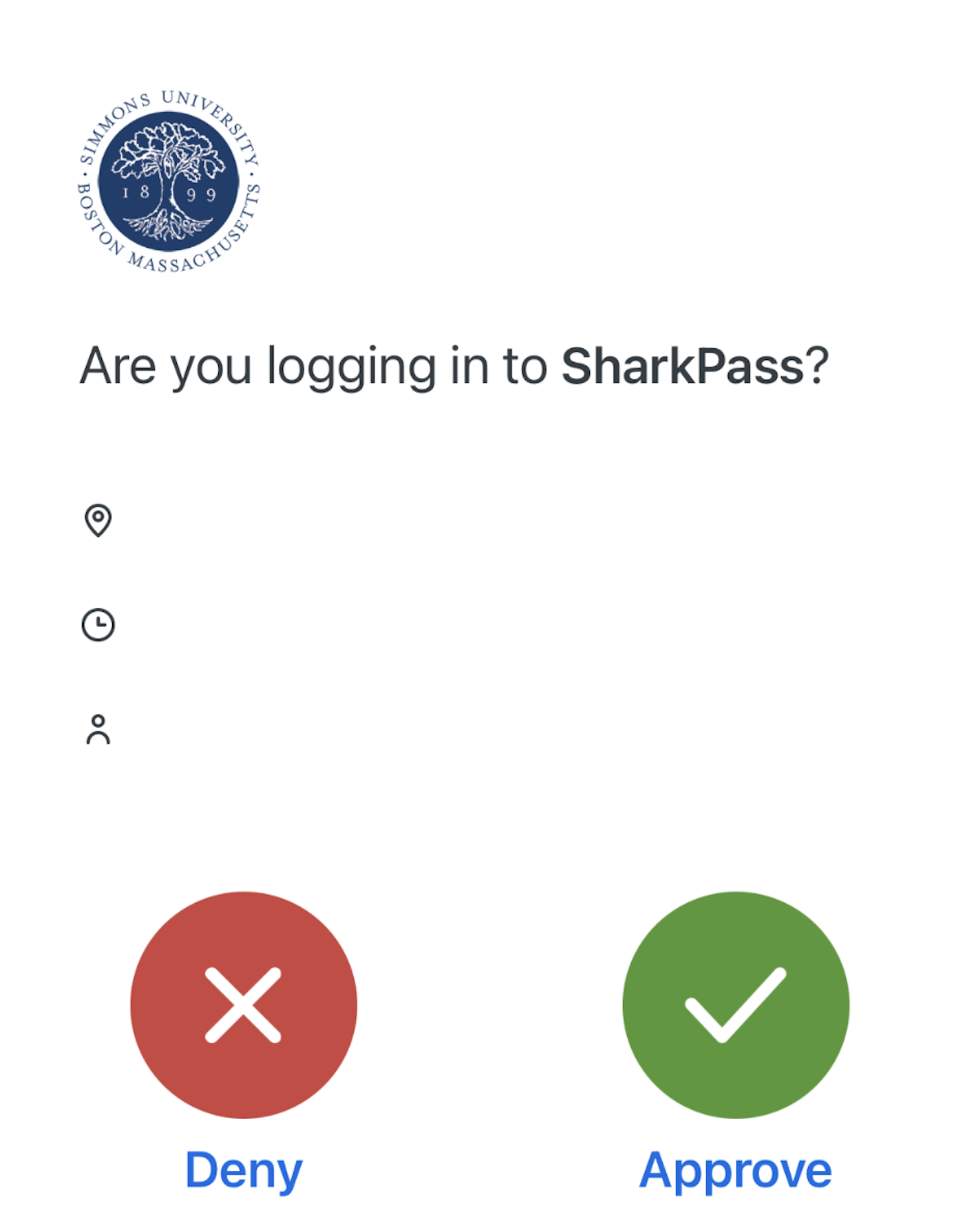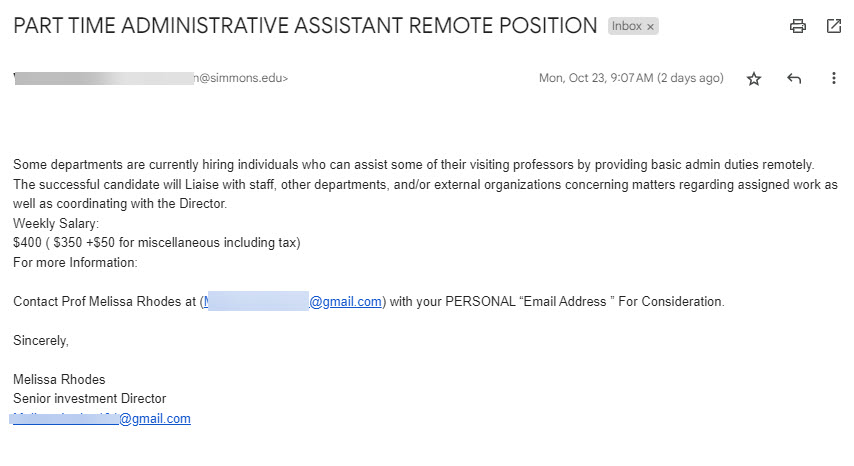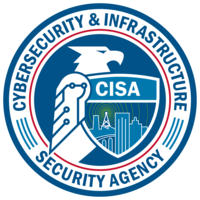
Some of you may have received a Phishing Email with the subject “A file has been shared with you”, or something similar. This email “appears” to be coming from someone within Simmons or even from an external email address. Clicking the link brings the victim to a web page that looks like an official-looking webpage and asks them to enter their username and password. Once that information has been entered on the webpage it is captured by the cyber criminals.

Almost immediately following, the cybercriminals attempt to login to Simmons’s email and systems with the stolen credentials and the victim will receive a Duo authentication request known as a “Rogue Push”, meaning one that was not requested. If the victim approves the Duo request, then the cybercriminals are allowed in. Think before you click!
The Job Scam is intended to steal money from the victim in one of two ways. The first is that they ask for personal information plus a bank name. They will then send an official looking email from that bank asking the victim to confirm details and maybe to reset a PIN code. The scammers will try to use this information to login to the bank account and withdraw money. The second way is to send the victim a paycheck in advance with instructions to use that check to purchase supplies or a computer from their vendor. The victim purchases these items before the bank has time to clear the deposited check. The fake check will bounce and the victim is left responsible for the purchases. Other variations of this scam have involved sending cryptocurrency such as bitcoin to the scammers.

As phishing and job scams targeting higher education persist, vigilance is key. Carefully inspect unsolicited emails and do not click links or provide information without verifying legitimacy first. Report suspect message as phishing in Gmail. Research employers thoroughly when job hunting and avoid requests for upfront fees or personal details. Never provide banking information. Stay alert and contact the IT help desk with any online safety concerns. Using caution and common sense are our best defenses against those looking to take advantage.
 Greetings! I’m Kristen Howard, the new Information Security Officer at Simmons University. My main goal is to work with faculty, staff, and students to raise awareness about cybersecurity and foster a secure online setting. By partnering together, we can protect the university’s information and enable a safe and effective digital environment for everyone in our community.
Greetings! I’m Kristen Howard, the new Information Security Officer at Simmons University. My main goal is to work with faculty, staff, and students to raise awareness about cybersecurity and foster a secure online setting. By partnering together, we can protect the university’s information and enable a safe and effective digital environment for everyone in our community.